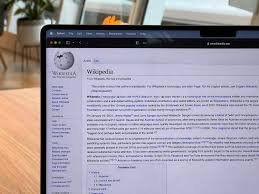Finding a job in a new country can be challenging, especially when navigating unfamiliar systems, cultures, and legal requirements. For expats looking to find employment in the UK, understanding the job market, visa requirements, and the application process is crucial. This guide will walk you through the steps and strategies to successfully secure a job in the UK as an expatriate.
1. Understand Visa Requirements
Before you start your job search, it’s essential to understand the visa requirements for working in the UK. The type of visa you need depends on your nationality, qualifications, and the type of work you intend to do.
- Skilled Worker Visa: This visa is for those who have a job offer from a UK employer that holds a valid sponsor license. The job must meet the skill level and salary threshold specified by the UK government.
- Global Talent Visa: For individuals who are recognized as leaders or potential leaders in fields such as science, engineering, humanities, medicine, digital technology, or arts and culture.
- Graduate Visa: If you’ve recently graduated from a UK university, you may be eligible for a Graduate Visa, allowing you to stay and work for two years (or three years for PhD graduates).
- Intra-company Transfer Visa: If you’re being transferred to a UK branch of your current employer, this visa may be applicable.
- Youth Mobility Scheme Visa: Available to young people aged 18-30 from specific countries, allowing them to live and work in the UK for up to two years.
It’s important to check the latest visa requirements on the UK government website as they are subject to change.
2. Research the UK Job Market
Understanding the UK job market is crucial for targeting your job search effectively. The UK has a diverse economy, with opportunities in various sectors. However, some industries may have more demand for skilled workers than others.
- High-demand sectors: These include healthcare, technology, engineering, finance, education, and skilled trades. Professionals with expertise in these areas may find it easier to secure employment.
- Regional variations: While London is a major hub for finance, technology, and creative industries, other regions like Manchester, Birmingham, and Edinburgh are also known for their job opportunities, particularly in sectors such as manufacturing, education, and healthcare.
- Networking opportunities: Engage with industry-specific events, online forums, and local expat communities to learn more about the job market and potential employers. Plumbing Takeoff Services
3. Tailor Your CV and Cover Letter
A well-tailored CV (Curriculum Vitae) and cover letter are essential when applying for jobs in the UK. Employers expect a specific format and style, so it’s important to adapt your application documents to meet local expectations.
- CV structure: A typical UK CV includes personal details, a professional summary, work experience, education, skills, and references. It’s usually two pages long and should be concise and focused on your achievements.
- Cover letter: This should complement your CV, explaining why you’re a suitable candidate for the role and how your experience aligns with the job description. Keep it clear, concise, and no longer than one page.
- Keywords: Ensure that your CV and cover letter include keywords from the job description to pass through Applicant Tracking Systems (ATS) that many UK employers use.
4. Utilize Online Job Portals and Recruitment Agencies
There are numerous online platforms and recruitment agencies that specialize in connecting expats with job opportunities in the UK.
- Online job portals: Websites like LinkedIn, Indeed, Reed, and Totaljobs are popular for job searches in the UK. They allow you to filter jobs by industry, location, and salary, making it easier to find roles that match your skills.
- Recruitment agencies: Specialized recruitment agencies can help match you with potential employers. Some agencies focus on specific industries, while others cater to expats and international candidates.
- Company websites: Many companies post job openings directly on their websites. If there are specific companies you’re interested in, regularly check their career pages.
5. Network Effectively
Networking can significantly increase your chances of finding a job in the UK. Building a professional network can help you gain insights into the job market and even lead to job offers.
- Attend industry events: Conferences, seminars, and job fairs are excellent opportunities to meet potential employers and industry professionals.
- Join expat and professional groups: LinkedIn groups, Facebook communities, and local meetups for expats and professionals can provide support and connections.
- Leverage LinkedIn: LinkedIn is widely used in the UK for professional networking. Ensure your profile is up-to-date, and engage with relevant content, groups, and connections. Construction Estimating Services
6. Prepare for the Interview Process
The interview process in the UK may differ from what you’re used to in your home country. Understanding what to expect can help you prepare effectively.
- Types of interviews: Be prepared for different types of interviews, including telephone interviews, video interviews, and face-to-face interviews. Some roles may also require assessment centers, where multiple candidates are assessed through a series of tasks.
- Cultural nuances: British interviewers often value punctuality, politeness, and clear communication. Research the company culture and dress code to ensure you make a good impression.
- Behavioral questions: UK employers often use competency-based questions that assess how you’ve handled specific situations in the past. Use the STAR method (Situation, Task, Action, Result) to structure your answers.
7. Consider Temporary or Part-Time Work
If securing a full-time position is challenging, consider taking on temporary, part-time, or freelance work. This can help you gain UK work experience, build your network, and improve your chances of securing a permanent role.
- Temp agencies: Many temp agencies in the UK specialize in placing candidates in temporary roles. These roles can sometimes lead to permanent positions.
- Freelancing: Platforms like Upwork, Freelancer, and PeoplePerHour can connect you with freelance opportunities. Freelancing can be a flexible way to earn income while you continue your job search.
8. Understand Employment Rights and Regulations
As an expat working in the UK, it’s important to be aware of your employment rights and the regulations that protect you.
- Minimum wage: Ensure that you’re being paid at least the national minimum wage, which varies depending on your age and whether you’re an apprentice.
- Working hours: The standard working week in the UK is 37-40 hours, but this can vary by industry. You’re also entitled to rest breaks and paid holidays.
- Contracts: Before starting a job, you’ll receive an employment contract outlining the terms and conditions of your employment. Review this carefully to understand your rights and obligations.
- Discrimination laws: UK law protects against discrimination based on race, gender, age, disability, and other factors. If you believe you’re being discriminated against, there are legal avenues for recourse.
9. Stay Informed About Changes in Immigration and Employment Laws
UK immigration and employment laws can change, especially in the context of Brexit and other political developments. Staying informed about these changes is crucial to ensure your continued eligibility to work in the UK.
- Follow government updates: Regularly check the UK government website for updates on visa regulations, work permits, and employment laws.
- Seek legal advice: If you’re unsure about your rights or the visa process, consider seeking advice from a legal professional who specializes in immigration law.
10. Maintain a Positive and Persistent Attitude
Finding a job as an expat in the UK can take time, so it’s important to stay positive and persistent throughout the process. Keep refining your CV, expanding your network, and applying for roles. Every rejection brings you one step closer to the right opportunity.
By understanding the UK job market, tailoring your application materials, and leveraging resources effectively, you can increase your chances of finding a job as an expat in the UK. With the right approach, you’ll be well on your way to building a successful career in this dynamic and diverse country.






